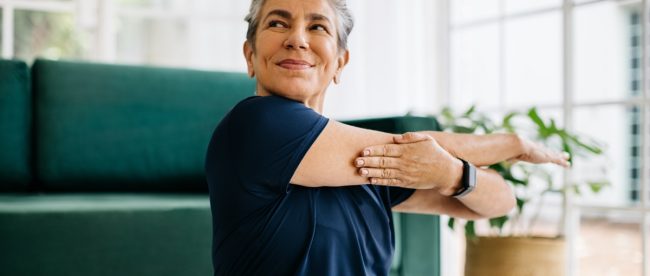How can you stay active and healthy as you get older?
As we age, our bodies and minds undergo changes that can impact our health and wellbeing
In the UK, where life expectancy has predictably fallen slightly in recent times but consistently trended upwards prior to the COVID-19 pandemic, it’s increasingly important to focus on our health and fitness. We live longer. So how can you stay active and healthy as you get older?
From governmental initiatives to scientific research, there’s a growing emphasis on the holistic health of older adults. This involves understanding how various aspects of lifestyle, from physical activity to social interactions, contribute to our overall health.
Below, we explore five key aspects to health and happiness in later life.
Physical activity
Physical activity is vital for maintaining health and mobility in older adults. The UK government’s Productive Healthy Ageing Profile 2023 update emphasises the importance of physical activity for healthy ageing, including the need for regular exercise to prevent diseases such as respiratory conditions, cancer, and cardiovascular disease.
Fitness programs for older adults are increasingly popular, including gym classes as well as team sports such as walking football. The latter allows older players to enjoy their beloved game with others and in their favourite football club home kit, without feeling off the pace.
Mental health
Mental health is an integral part of overall wellbeing, especially for the elderly. Regular physical activity is not only good for the body but also for the mind, triggering the release of endorphins, improving mood and combating conditions like depression.
There are lots of other ways to preserve cognitive function though, including enjoying old and new hobbies and maintaining a good sleep schedule.
Socialising
Staying socially active is another crucial aspect of healthy ageing. Engaging in community activities, joining clubs or groups and maintaining regular contact with friends and family can help reduce feelings of loneliness and isolation, which are common in older adults.
Volunteering is one option for becoming more active in the local community, making a positive difference in retirement while keeping the mind sharp.
Diet
A balanced diet is essential for maintaining health in older age. Eating a variety of nutrient-rich foods helps maintain energy levels, supports immune function and reduces the risk of chronic diseases.
It’s important to adjust dietary habits to suit changing metabolic rates and nutritional needs as we age. Consuming less salt can help to lower blood pressure, lose weight and reduce the risk of diabetes and heart disease, for example.
Read more: Thinking about ways to eat more healthily?
Health check-ups
Regular health check-ups are key to preventative care in older adults. These check-ups can help identify and manage health issues before they become serious, leading to better outcomes and ensuring a better quality of life for longer.
Visiting annually or more regularly depending on your health is a positive approach, regardless of whether you’re experiencing any symptoms.
In conclusion, staying healthy and active as we get older involves a multi-faceted approach with each element contributing to a bigger picture. By focusing on these aspects, we can all lead fulfilling lives beyond what we imagine possible.




Leave a comment